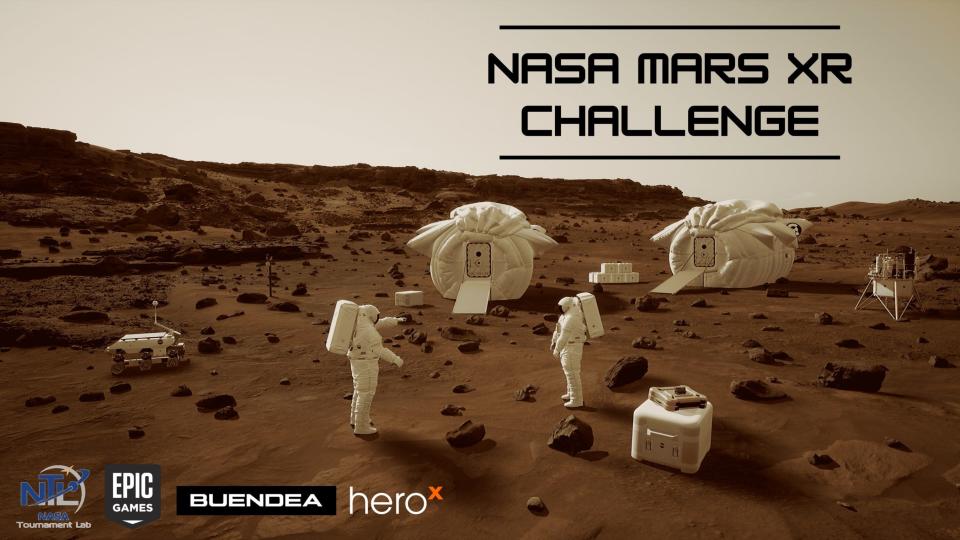A life-like Mars: NASA, HeroX host competition to make simulation feel real for astronauts
Space is important to us and that's why we're working to bring you top coverage of the industry and Florida launches. Journalism like this takes time and resources. Please support it with a subscription here.
---
NASA is launching an online competition to refine the virtual reality simulation that it will use to train astronauts for potential Mars missions and is offering $70,000 in prize money.
NASA has developed a life-like Mars digital environment, but it needs the help of virtual reality developers to make it feel real enough for researchers and astronauts to interact with and train in.
The NASA MarsXR challenge identifies five unique categories for creators to use virtual reality headsets, gloves, and other tools to model scenarios that may be encountered during early human expeditions to Mars in a hyper-realistic virtual reality setting.

International Space Station launch: NASA, SpaceX Crew-4 set for early morning launch to ISS in season of busy space traffic
Artemis driving NASA's budget: NASA requests $26 billion in federal funding for 2023, focuses heavily on Artemis
A year on Mars: NASA celebrates year of Perseverance and Ingenuity on Mars, races to find evidence of life
Developers can choose to submit creations in the areas of setting up camp, scientific research, maintenance, exploration, and the "Blow Our Minds" free-for-all category.
To facilitate research, development, and testing using virtual reality, NASA, in collaboration with Buendea, is developing the Mars XR Operations Support System using Epic Games' Unreal Engine 5.
Participants of the NASA MarsXR Challenge will gain first access to this virtual reality environment, which includes:
Full Martian days, with the orange hues of day transitioning to blue at night.
Changing weather conditions and Martian gravity.
Over 400 km2 (~ 154 Miles2) of realistic, researched Mars terrain.
Some existing assets, such as suits and rovers.
"Creators can use Unreal Engine to build realistic simulation scenarios to help prepare NASA for future missions, whether that's to the moon or to Mars," said Seb Loze, Unreal Engine business director for simulation at Epic Games. "Whether you're a game designer, architect, hobbyist or rocket scientist, anyone can build with UE5, and we can't wait to see the immersive simulations the community comes up with."
The challenge is open for submissions through July 26. In September four winners will be selected from each category with one top-winning team to be selected for a $6,000 cash prize.
"Ongoing research has identified over one thousand tasks that are likely needed to be performed during early human expeditions to Mars," as outlined in the competition's website description. "It is unrealistic to build all the training elements for tasks, but using virtual reality we can evaluate some aspects of future missions, such as the optimal size of the crews, what procedures will enable crew health and performance, and what equipment the crew will need to take on each mission."
Teams are eligible to win more than one award and can choose to submit multiple proposals in each category and submit to as many categories as they wish.
"It's always exciting to see how cutting-edge technology makes what we thought previously impossible possible," said Kal K. Sahota, chief executive officer of HeroX. "HeroX's expansive network is sure to find ways to further develop VR technology and better prepare humans for space exploration."
To participate in the challenge, visit herox.com/MarsXR.
Jamie Groh is a space reporter for Florida Today. You can contact her at JGroh@floridatoday.com. Follow her on Twitter at @AlteredJamie.
This article originally appeared on Florida Today: HeroX hosts NASA challenge to refine Mars simulation for astronauts

